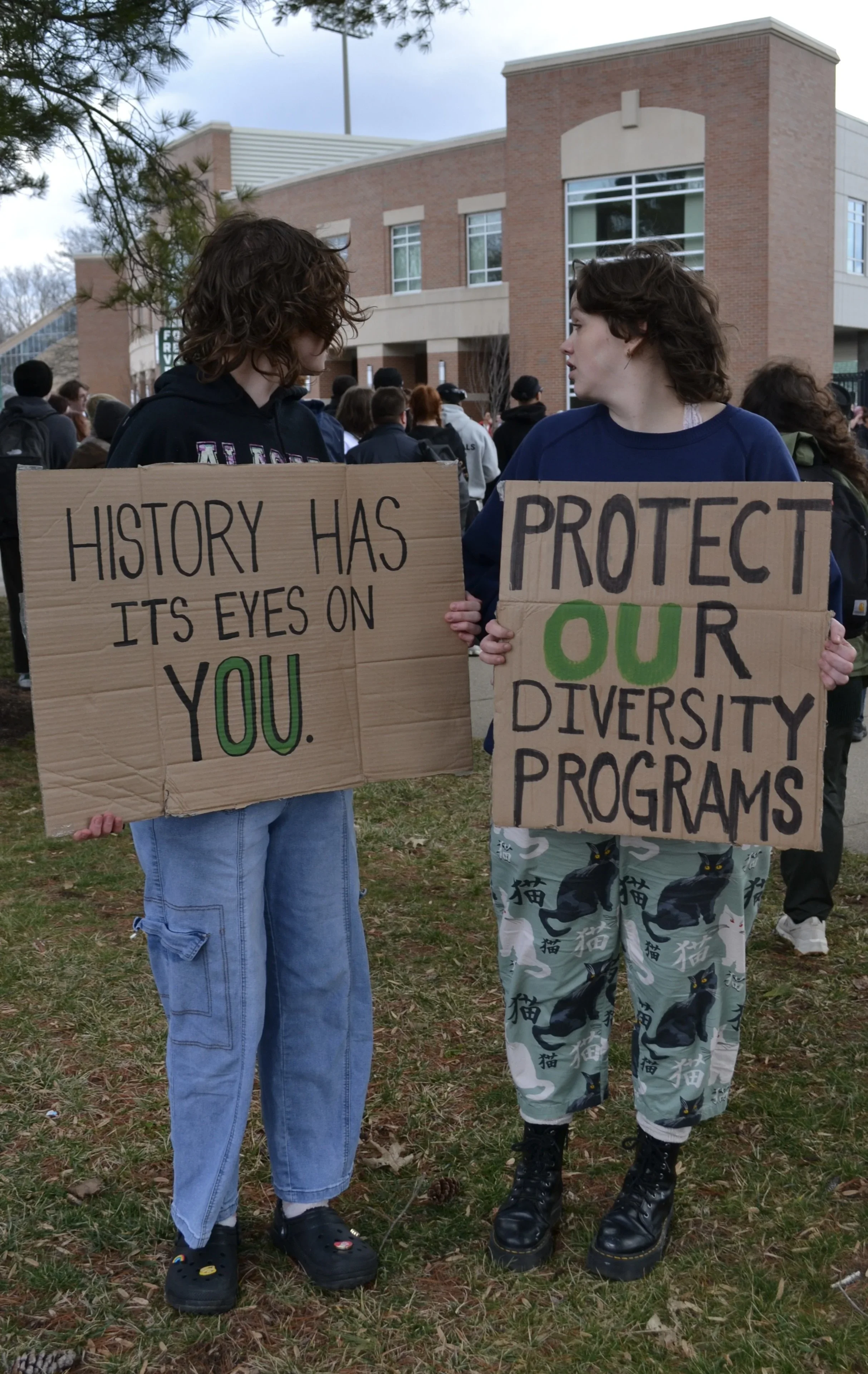OPINION: SB1 causes detriment to the society of universities.
Photo via Lily Franks/The New Political
Ollie Hunt, a Sophomore studying Journalism, argues that slashing DEI-related programs at Ohio universities is worse for the students and institutions than politicians thinks.
On March 28, Ohio Governor Mike DeWine signed Senate Bill 1, titled “Enact Advance Ohio Higher Education Act.” This legislation would then go into effect by June 27, changing the way many universities, including Ohio University, organize the different walks of life that pass through its gates.
The first tangible change following this act was the sundowning of three identity centers that had found a home in Baker University Center. This move was announced by President Lori Stewart Gonzalez late last semester, with updates to students via email over the summer.
Upon returning to campus, I had passed through the Baker Center and felt the loss of these offices. Where the Pride Center stood, unashamedly keeping a pride flag in their window, was nothing. Same with the Multicultural Center and the Women’s Center. It feels eerie that a once inviting place for all walks of life has been stripped of all identity. Our students deserve better than this. And while these initiatives will be absorbed by new, less “loud and proud” organizations and offices, I can’t help but feel as though I and many others have lost an easily accessible place to go and just be.
The next change felt throughout the university was the school’s hard decision to slash majors with low enrollment to comply with the act. Over 10 majors were cut and 18 others were merged to increase the final enrollment numbers. Among the cut programs are Bachelor of Arts in Chemistry, Bachelor of Fine Arts in Interdisciplinary Arts and Bachelor of Science in Education in Family and Consumer Sciences Education in Teaching. These programs will graduate current students and bar future enrollment.
Within this list of cut programs, most are liberal arts degrees. This hurts the future of liberal arts education. Cutting these programs completely eliminates the ability to learn from the professors who have dedicated their lives to teaching these important courses. Arts and sciences will be lost to time as we stray further and further from the opportunity of education.
Another aspect of EAOHEA is the muffling of conversations in the classroom and around campus.
The sunset of DEI programs such as the Pride Center, the Women’s Center and the Multicultural Center has put a stasis on important conversations and senses of belonging for students. Students are not able to become familiar with the resources on campus to help them succeed. Conversations in the classroom are stifled as threats of reprimand surface from the act. Ohio Administrative Policy 18.010 states that professors shall not “seek to indoctrinate any social, political, or religious point of view,” and allow students to reach their own conclusions on “all controversial beliefs or policies.”
This part of the policy change is interesting. Just last semester, I decided to take a Women and Gender Sexuality Studies course to fulfill one of many prerequisites involved in completing my degree. During this class, many controversial beliefs and policies of the social state of the world were brought up. Never had I felt my professor was indoctrinating any sort of belief into me or my peers. I recall having healthy conversations with my peers, my professor acting only as a facilitator of knowledge. I got to hear from many of my peers and their experiences, opening up many different perspectives.
With these new policies to limit this conversation in the classroom, it will open up a whole different aspect of censorship. Professors and students will be too afraid to breathe a word of anything that could be labeled as DEI, lest someone report them to an “End DEI” portal.
This begs the question of the true motivation to pass this bill. Without proper dialogue and healthy argument, how are we supposed to come to new conclusions on previously held opinions? The critical thinking skills of our nation will start to lack as we leave out one of the most important and healthiest ways of practicing.
SB1 assimilation will only hurt the students and faculty of universities. The other decision, being the loss of federal funding, carries too much weight to be treated as just another pro or con. Ohio U’s culture is dying as we know it.
Please note that these views and opinions do not reflect those of The New Political.

